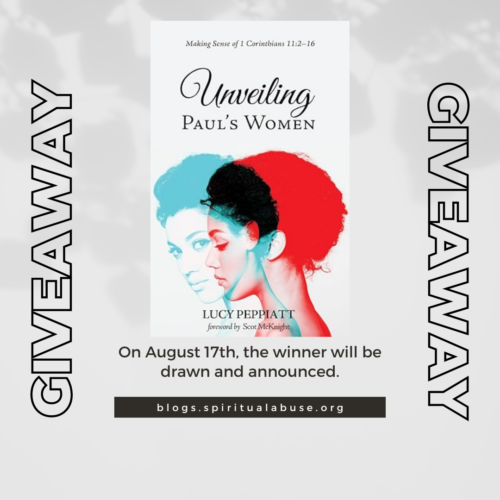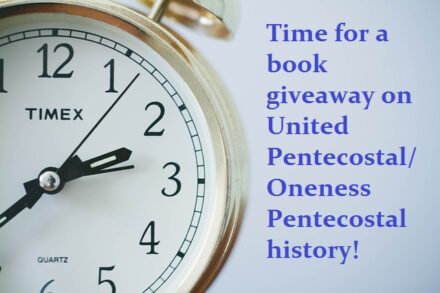This is only open to those with a USA mailing address. There is absolutely no cost to enter.
This is your chance to receive a new copy of Unveiling Paul’s Women: Making Sense of 1 Corinthians 11:2–16 by Lucy Peppiatt. It costs $18.
As many of our readers know, this section of 1 Corinthians has been used to teach that women must wear a head covering when in church, as well as that women must never cut their hair (as taught in the United Pentecostal Church). It’s also been used to teach that women are somewhat less than men.
I found it very interesting how Lucy Peppiatt puts forth the thought that in these passages Paul is repeating some things that the Corinthian believers had written to him. In other words, she believes that in verses 4-5 and 7-10, Paul was repeating what the Corinthians had previously shared with him. Verse 16 is then saying that there is no such custom of wearing head coverings.
We do know that Paul was responding to a letter he had received from this group of believers, so this thought is not unreasonable. We also know that the Corinthians were very messed up and carnal, and Paul had to correct them on numerous issues.
The author also covers various aspects and views on this section of scripture. I found her view of the passages to be plausible and that they made more sense that way. I don’t believe Paul was anti-women and have never liked when people attempt to portray Paul in a negative light. There are actually those who hate Paul, I believe due to a misunderstanding or misinterpretation of certain passages. Perhaps this book will help someone who feels this way.
This giveaway is a drawing. To enter, just leave a comment to show you wish to be included. The drawing will close on August 15, 2024 at 6pm (eastern time), after which I will draw a winner.
Be sure to check back to see if you have won as in the past some people have not responded after winning and so a new winner had to be drawn. You will then need to email me your mailing address if I do not already have it, so be sure to watch your email and check the spam folder. If I know your Facebook profile, I will message you there.
Don’t be alarmed if your comment does not immediately show as it may require approval.
********
Shop at our Amazon store! As an Amazon Influencer, this website earns from qualifying purchases.



